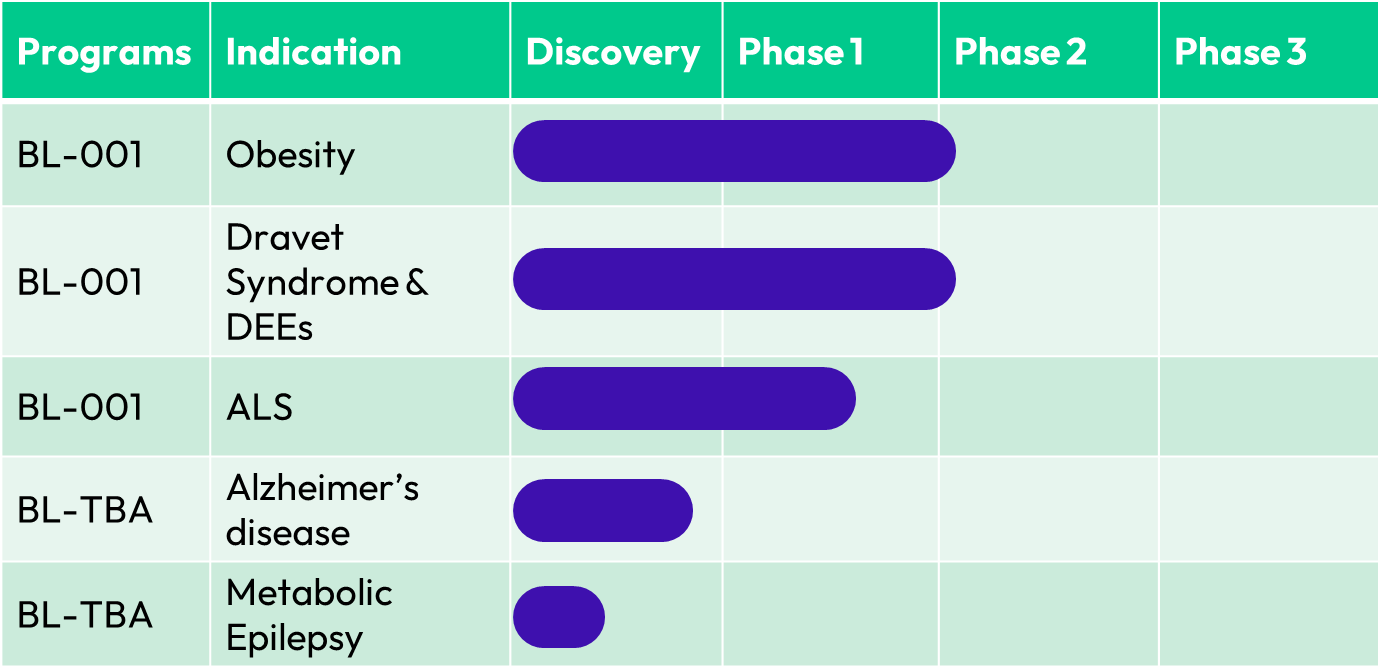Science
Unlocking new therapeutic pathways for metabolic and neurological health
Deep Pipeline of Novel Therapeutic Opportunities
At Bloom Science, we are taking a fundamentally different approach to developing medicines by harnessing our deep knowledge about how the gut microbiome modulates key processes in metabolism, the immune system, nervous system and brain. Our programs and research areas include:
- Obesity and Metabolic syndromes
- Dravet syndrome and Developmental Epileptic Encephalopathies (DEEs)
- Amyotrophic Lateral Sclerosis (ALS)
- Neuropsychiatric Conditions
- Alzheimer’s
Our Pipeline

BL-001: Reverse Engineering of the Ketogenic Diet
BL-001 is a live biotherapeutic product reverse engineered to replicate the ketogenic diet’s clinical efficacy. BL-001 has demonstrated proof of mechanism and has been observed to be safe and tolerable, with Bloom planning Phase 2 clinical trials in both obesity and Dravet syndrome.
100 years of research and clinical experience has shown that the ketogenic diet, a metabolic intervention, results in significant clinical outcomes
The ketogenic diet has a rich history of therapeutic use, particularly in managing epilepsy and obesity. This timeline highlights key milestones in the development of BL-001.
1920s
Early Discoveries
In the 1920s, the ketogenic diet was first introduced as a treatment for epilepsy, showing promising results in reducing seizure frequency in patients.
1970s
Revival in Obesity Research
The 1970s saw a resurgence of interest in the ketogenic diet as a potential intervention for obesity, with studies exploring its impact on weight loss and metabolic health.
1990s
Scientific Validation
By the 1990s, scientific research began to validate the ketogenic diet’s efficacy, leading to increased adoption in both clinical and therapeutic settings.
2018
Microbiome Connections
Prof. Elaine Hsiao at UCLA showed that the ketogenic diet operates through the microbiome and that specific species of commensal bacteria could replicate the therapeutic effect in preclinical seizure models.
Overview of BL-001 Development and Data Supporting Replicating Ketogenic Diet
Early Discovery
Platform and Candidate Selection
- Bloom builds IrisRx platform
- Screens for therapeutic candidates
Pre-Clinical
Scientific Validation
- Bloom confirms and expands anti-epileptic effect of BL-001
- Development of BL-001
Phase 0
Scientific Validation
Performed reverse FMT of patient samples into same preclinical animal models → confirmed anti-epileptic effect
Phase 1
Healthy Volunteers
- Double blind placebo controlled
- No SAEs reported
- Mild to moderate TEAEs similar to those expected from someone starting the KD
Phase 1
Significant Clinical Response
- Dose-Dependent Ketogenic Metabolic Changes
- Treatment with BL-001 results in statistically significant weight loss in overweight subjects (BMI between 25-30)
Bloom Science is developing breakthrough therapies for patients with neurological and metabolic disorders by harnessing the inter-connectivity of the gut, microbiome and the brain.
This interplay occurs through various pathways, including neural, metabolic, hormonal, and immunological mechanisms. Research has shown that changes in the composition of the gut microbiome is linked to neurological processes, metabolism and brain function.
We investigate how changes in the gut microbiome impact pathways and key processes in the nervous system, metabolic system, immune system and brain.

What is the gut microbiome?
What is a Live Biotherapeutic Product (LBP)?
What is the gut-brain axis?
The gut and brain connect via a network of pathways known as the gut–brain axis. This link between the gut and the brain influences multiple pathways and processes including digestion, immune system activities, mood, cognition, mental health and age-related mechanisms.
